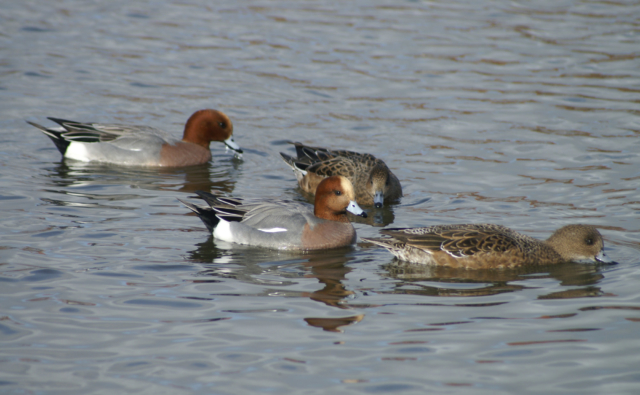
Press release
Arles, March 10, 2020
An international collaboration involving researchers from the Tour du Valat, the French Office for Biodiversity (OFB), the National Museum of Natural History (MNHN), the Centre for Functional and Evolutionary Ecology (CEFE), the Norwegian Institute for Nature Research (NINA) and partners of the Mediterranean Waterbird Network (ROEM) from different Mediterranean countries highlighted the effectiveness of Ramsar sites for waterbirds to enhance waterbird populations across the Mediterranean Basin. This study has just been published in Biological Conservation journal.

Although biological conservation is based on international agreements, its effectiveness depends on how countries implement such recommendations as effective conservation tools. The Ramsar Convention is the oldest international treaty for wetland and waterbird conservation, establishing the world’s largest network of protected areas. However, since it does not constitute any binding measure, its effectiveness in protecting wintering waterbird populations at an international scale has been questioned.
In this study, a long-term count data (1991‒2012) were used to assess the effectiveness of the Ramsar Convention in the Mediterranean Basin. The abundance and temporal trends of 114 waterbird species between 251 Ramsar wetlands and 3,486 non-Ramsar wetlands were compared. The results show that the Ramsar network is critical for wintering waterbirds, concentrating nearly half of all waterbirds counted in the Mediterranean Basin in only 7% of monitored wetlands. Waterbird trends followed a northwest-southeast gradient, with a population decrease in the East. A significant and positive Ramsar effect on population trends was only found for the species of higher conservation concern in the Maghreb, particularly when a management plan was implemented. The Ramsar Convention was previously used on very important wetlands for waterbirds in Southern Europe, but is now an underused conservation tool.
This study suggests weaknesses in the use of Ramsar as an effective conservation tool in most of the Mediterranean Basin. However, the Ramsar Convention effectiveness to enhance waterbird populations in the Maghreb should encourage strengthening the Ramsar Convention. It should be done particularly in countries with limited environmental agreements and by systematic implementation of management plans.
REFERENCE
E. Gaget, I. Le Viol, D. Pavón-Jordán, V. Cazalis, C. Kerbiriou, F. Jiguet, N. Popoff, L. Dami, J.Y. Mondain-Monval, P. Defos du Rau, W.A.I. Abdou, L. Bozic, M. Dakki, V.M.F. Encarnação, K. Erciyas-Yavuz, K.S. Etayeb, B. Molina, N. Petkov, D. Uzunova, M. Zenatello and T. Galewski. 2020. Assessing the effectiveness of the Ramsar Convention in preserving wintering waterbirds in the Mediterranean Biological Conservation. 243 (online February 2020). https://doi.org/10.1016/j.biocon.2020.108485
Tour du Valat
Tour du Valat is a research institute for the conservation of Mediterranean wetlands created more than 65 years ago by Luc Hoffmann. It has developed its research activities for the conservation of Mediterranean wetlands with the constant desire to reconcile man and nature. Convinced that it will only be possible to preserve wetlands if human activities and the protection of the natural heritage can be reconciled, Tour du Valat has for many years been developing programmes of research and integrated management that favour interchanges between wetland users and scientists, and promote wetland benefits to decision makers and socio-economic actors. www.tourduvalat.org
Follow us on Twitter @TourduValat
PRESS CONTACTS
Muriel ARCAUTE-GEVREY, communication officer: +33 (4) 90 97 63 75 – [email protected]
Thomas GALEWSKI, research scientist : +33 (4) 90 97 29 78 – [email protected]
Elie GAGET, research scientist : [email protected]



